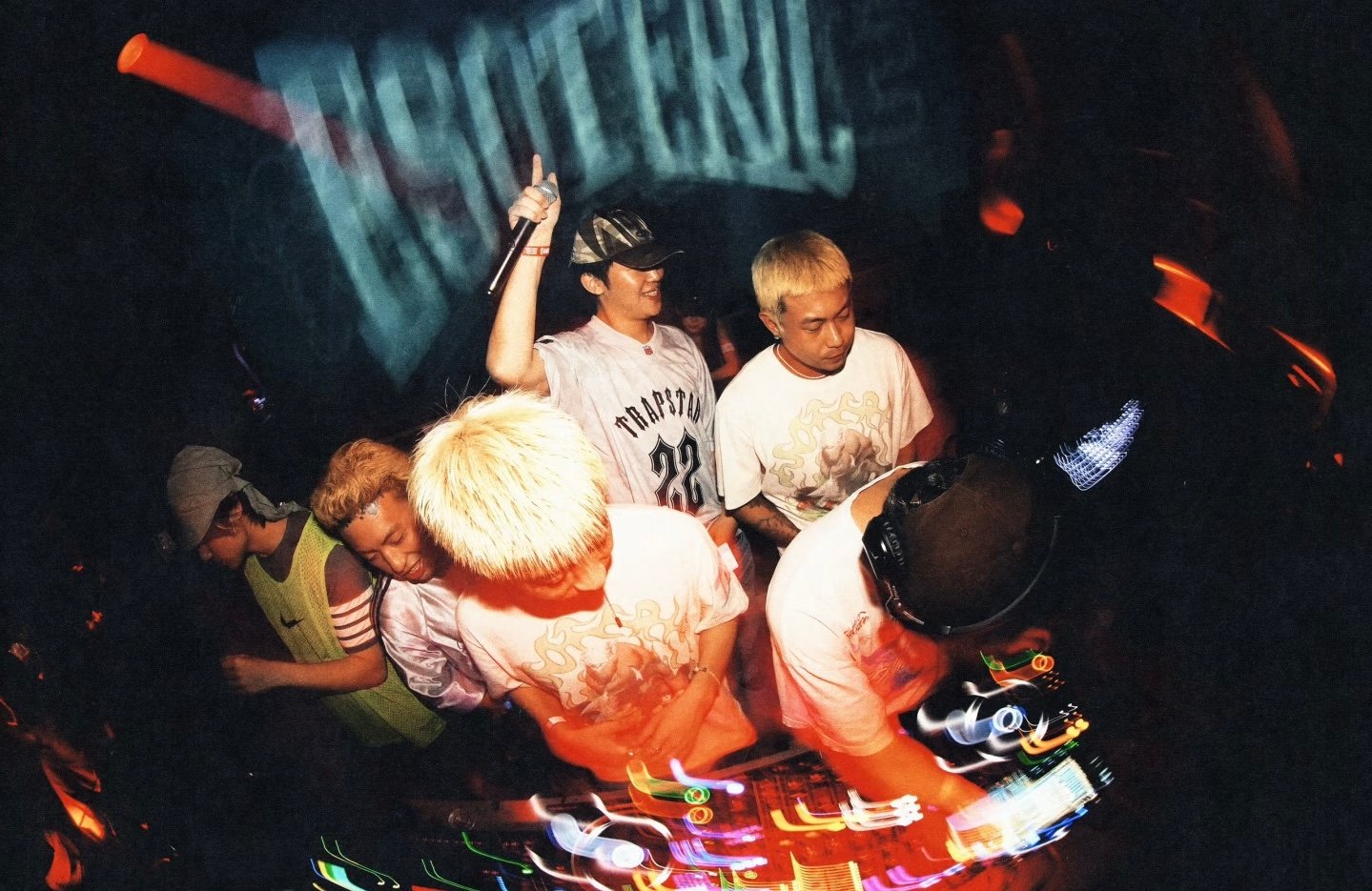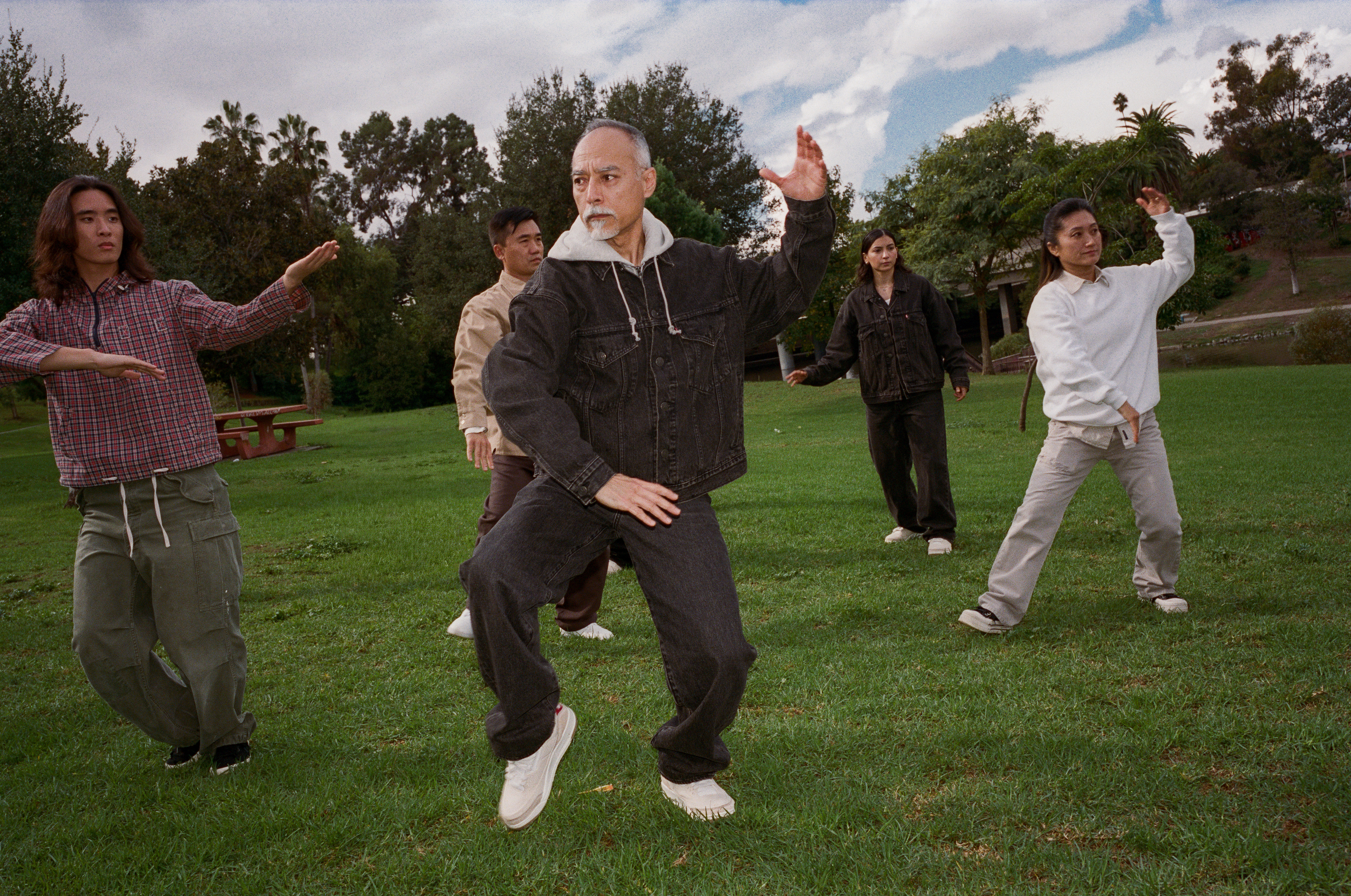These days, there is a new way to compliment women in China: “You look so ‘A!’”
“A” — short for “alpha” — is often used together with “sa” (飒), which translates to “super cool” or “swag.” The phrase “又A又飒” (yòu A yòu sà) has therefore become the latest way to praise the style of a strong and confident woman.
A term that originated from the world of Chinese internet fandom, “chao A” (超A, or “super alpha”) was propelled into popular lexicon in 2020, the year that saw women’s issues at the forefront of Chinese pop culture. Trending topics about gender equality on Chinese microblogging platform Weibo soared alongside hit shows Sisters Who Make Waves and Nothing But Thirty, whose female stars were praised for their fierce fashion and onstage energy.
Related:
 How Women in Entertainment Fought to Bring Female Narratives to the Fore in 20202020 was a watershed year for female voices impacting deep-rooted social issues in China. Here’s how mainstream entertainment stars brought them to the biggest stagesArticle Dec 23, 2020
How Women in Entertainment Fought to Bring Female Narratives to the Fore in 20202020 was a watershed year for female voices impacting deep-rooted social issues in China. Here’s how mainstream entertainment stars brought them to the biggest stagesArticle Dec 23, 2020
The aspiring idols of pop contest Sisters were often clad in sexy all-black ensembles, or performed difficult routines in cargo pants and military boots. Meanwhile the protagonist of drama Nothing but Thirty, a level-headed businesswoman, wore chic office attire and relaxed trench coats that accentuated her calm, inner strength as she fought tough scenarios in her life.
While both shows received their fair share of criticism for not living up to their “female empowerment” billing, women in China have nevertheless bought into the “alpha female” look that they helped popularize.
More Menswear
Oversized boxy blazers, one-color ensembles, sweats, and combat boots are just a few of the staple pieces of an “alpha female” ensemble. Think ‘80s power dressing meets streetwear, updated with contemporary athleisure in the form of bralettes and biker shorts.
“A lot of the styling and design ideas come from menswear,” says Hazel Ge, a menswear designer, about the look. “One-tone dressing gives a stronger visual impact, increasing the presence of the wearer.” Menswear has been in use by women for decades, thanks to its traditionally masculine associations with independence, strength, and confidence.

“Alpha female” fashion recommendations featuring Korean influencer Modus (source: Red)
But unlike some girls that wear menswear for androgyny’s sake, the “alpha female” look isn’t about aspiring to look “boyish.” Expect to see the strategic flaunting of a toned waist or legs, as well as an impeccably made-up face bringing attention to the eyes and lips. The look combines the confidence and power of menswear while embracing, even accentuating, the body’s most feminine features.
Specifically, the “chao A” trend has its roots in the Kpop “girl crush” concept, which Chinese idol TV shows such as Sisters Who Make Waves have been quick to adopt.
Alpha Female Idols
“Girl Crush” is a Kpop concept that is exactly what it sounds like: promoting fierce, confident female performers in an aspirational, non-sexual way.
While these Korean idols’ outfits are indeed sexy, empowering messages in songs advocate for girls to embrace the core value of dressing for themselves and not for the male gaze.

A still from Hwa Sa’s “Maria” dance performance video (source: YouTube)
Lyrics from songs such as Hwa Sa’s “Maria” — “Why are you trying so hard? / You’re already beautiful” — and Itzy’s “Dalla Dalla” — “Don’t measure me by your standards alone / I love being myself, I’m nobody else” — encourage listeners to take pride in and control of their own image.
These idols dress accordingly, wearing leather shorts or sweatpants instead of lace and floral dresses, shunning an otherwise cute or girly image.
Similarly within China, the celebrities lauded for their “girl crush” appeal include actresses Nini, Song Yanfei, Zhang Yuqi, and Zhong Chuxi.

Actresses Song Yanfei (left) and Zhong Chuxi (right) wearing “alpha female” outfits (source: Weibo)
Zhang Yuqi, one of the popular participants of Sisters, earned her “girl crush” status in 2020 on the show for dressing feminine while acting bossy. Her debut acceptance speech on the competition raised awareness for domestic violence and female independence, garnering praises from netizens for truly embodying the power and perspective of an over-30 “sister.”
Dressing Bossy
The “alpha female” is not only captivating on stage, but also demonstrates power in the office. “In the past, business was still dominated by men, and a woman who wants to be heard needed to exert more effort,” says Ashley Dudarenok, founder of China marketing agency ChoZan and Alarice. She elaborates that fashion can be a way for women to send a message of empowerment and leadership in the workplace.
Chloe Hu, an independent brand strategist from Shanghai, shares that she prefers the “alpha female” trend in business settings as she can present her professional side while also showing that she’s fashion conscious. Rather than commanding more attention from others, however, Hu says dressing “alpha” helps with her own mindset. “It generates more confidence in my speech and mannerisms,” Hu explains, though she admits the need for power dressing diminished as she grew comfortable in her position.

Menswear designer Hazel Ge (courtesy Hazel Ge)
For Ge, meanwhile, dressing the “alpha female” part is just an extension of who she is. “Wearing sharp and structured clothes that enhance my presence is most comfortable for me,” Ge says, adding that wearing girly clothes make her uneasy and lose confidence.
According to a 2018 Taobao consumer report, Chinese consumers are ignoring stereotypical gender boundaries and buying items originally designed with the opposite gender in mind. The emergence of diverse styles in China attests to the curiosity and fashion appetite of these consumers. For Chinese women especially, it is no longer about pleasing the male crowd, but dressing to express themselves, and to find their own belonging.
“Getting acceptance and praise from female groups and communities is more fulfilling, as women tend to be more fashion conscious than men in China,” says Juliette Duveau, co-founder of China-focused consultancy The Chinese Pulse. Hu agrees that the sense of community is the real appeal and source of empowerment, for “girl crushes” as well as for sources of alpha female fashion inspiration.

Girls seen in Taiguli, a popular shopping district in Chengdu known for street fashion (source: Weibo)
Though the look certainly has its hallmarks, it appears that being “chao A” is more a way of carrying oneself than following a specific style guide. What matters is that women feel empowered to channel their inner strength outwards to be the best they can be, in defiance of the people they may intimidate or expectations they may defy.
“Consumers’ concerns have changed, and they are more eager to see women appearing on the screen and in life as independent individuals,” Dudarenok observes.
This parallels the growing number of Chinese women that are independent, opinionated, and eager to flex their autonomy and career mobility through fashion. These are China’s new alpha females.
Header image: courtesy Hazel Ge
















